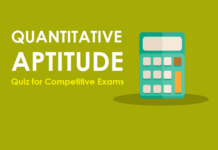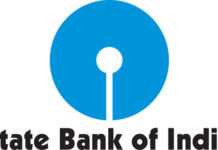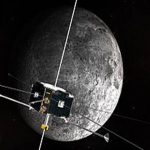Indian politics : A chronology of key events :
India has been home to several ancient civilisations and empires, some dating back to more than 2,000 BC. Culture and religions have flourished over the millennia, and foreign influence has ebbed and flowed.
1858 – India comes under direct rule of the British crown after failed Indian mutiny.
1885 – Indian National Congress founded as forum for emerging nationalist feeling.
Mahatma Gandhi : (1869 – 1948):
Mahatma Gandhi steered India to independence
1920-22 – Nationalist figurehead Mahatma Gandhi launches anti-British civil disobedience campaign.
1942-43 – Congress launches “Quit India” movement.
1947 – End of British rule and partition of sub-continent into mainly Hindu India and Muslim-majority state of Pakistan.
Newly independent
1947-48 – Hundreds of thousands die in widespread communal bloodshed after partition.
1948 – Mahatma Gandhi assassinated by Hindu extremist.
1948 – War with Pakistan over disputed territory of Kashmir.
1951-52 – Congress Party wins first general elections under leadership of Jawaharlal Nehru.
Regional tensions:
1962 – India loses brief border war with China.
1964 – Death of Prime Minister Jawaharlal Nehru.
1965 – Second war with Pakistan over Kashmir.
1966 – Nehru’s daughter Indira Gandhi becomes prime minister.
1971 – Third war with Pakistan over creation of Bangladesh, formerly East Pakistan.
1971 – Twenty-year treaty of friendship signed with Soviet Union.
1974 – India explodes first nuclear device in underground test.
Democratic strains
1975 – Indira Gandhi declares state of emergency after being found guilty of electoral malpractice.
1975-1977 – Nearly 1,000 political opponents imprisoned and programme of compulsory birth control introduced.
1977 – Indira Gandhi’s Congress Party loses general elections.
1980 – Indira Gandhi returns to power heading Congress party splinter group, Congress (Indira).
1984 – Troops storm Golden Temple – Sikhs’ most holy shrine – to flush out Sikh militants pressing for self-rule.
Indira Gandhi :
1984 – Indira Gandhi assassinated by Sikh bodyguards, following which her son, Rajiv, takes over.
1984 December – Gas leak at Union Carbide pesticides plant in Bhopal. Thousands are killed immediately, many more subsequently die or are left disabled.
1987 – India deploys troops for peacekeeping operation in Sri Lanka’s ethnic conflict.
1989 – Falling public support leads to Congress defeat in general election.
1990 – Indian troops withdrawn from Sri Lanka.
1990 – Muslim separatist groups begin campaign of violence in Kashmir.
1991 – Rajiv Gandhi assassinated by suicide bomber sympathetic to Sri Lanka’s Tamil Tigers.
1991 – Economic reform programme begun by Prime Minister PV Narasimha Rao.
1992 – Hindu extremists demolish mosque in Ayodhya, triggering widespread Hindu-Muslim violence.
Indian Parliament : Frequently asked General knowledge questions on :-
Parliament is the supreme legislative body of a country. Our Parliament comprises of the President and the two Houses—Lok Sabha (House of the People) and Rajya Sabha (Council of States).
Current President of India – Pranab Mukherjee-Since 25 July 2012
Lok Sabha : Lok Sabha is the body of representatives of the people.The present membership of Lok Sabha is 545
Speaker of Lok Sabha : Meira Kumar -Since 3 June 2009
Deputy Speaker of Lok Sabha : Kariya Munda, BJP Since 8 June 2009
Rajya Sabha : Rajya Sabha is the Upper House of Parliament. It has not more than 250 members. Members of Rajya Sabha are not elected by the people directly but indirectly by the Legislative Assemblies of the various States. Every State is allotted a certain number of members. No member of Rajya Sabha can be under 30 years of age. There are at present 245 members in Rajya Sabha.
The Vice-President of India is the ex-officio Chairman of Rajya Sabha. He is elected by the members of an electoral college consisting of members of both Houses of Parliament. Rajya Sabha also elects one of its members to be the Deputy Chairman.
Chairman of Rajya Sabha : Mohammad Hamid Ansari ,Since 25 August 2012
Deputy Chairman of the Rajya Sabha : P. J. Kurien, Congress,Since 21 August 2012
Parliament House : The building was designed by two famous architects— Sir Edwin Lutyens and Sir Herbert Baker—who were responsible for the planning and construction of New Delhi.
The Foundation Stone of Parliament House was laid on the 12th February, 1921 by H.R.H. The Duke of Connaught. The construction of the building took six years and the opening ceremony was performed on the 18th January, 1927 by the then Governor-General of India, Lord Irwin. The cost of construction was Rs. 83 lakhs.The building has twelve gates among which Gate No. 1 on the Sansad Marg is the main gate.
Parliament Budget : The ‘Annual Financial Statement’, laid before both the Houses of Parliament constitutes the Budget of the Union Government. This statement takes into account a period of one financial year. The financial year commences in India on 1st April each year. The statement embodies the estimated receipts and expenditure of the Government of India for the financial year.
Outstanding Parliamentarian Award : An award for Outstanding Parliamentarian was instituted by the Indian Parliamentary Group in the year 1995. The First and Second awards for the years 1995 and 1996 were conferred on Shri Chandrashekhar and Shri Somnath Chatterjee respectively. The Third and Fourth awards for the years 1997 and 1998 were conferred on Shri Pranab Mukherjee and Shri S. Jaipal Reddy respectively. The Fifth, Sixth, Seventh and Eighth awards for the years 1999, 2000, 001 and 2002 were conferred on Shri L. K. Advani, Shri Arjun Singh, Shri Jaswant Singh and Dr. Manmohan Singh respectively.
Parliamentary Committees :
Estimates Committee
Committee on Empowerment of Women
Committee on Welfare of Scheduled Castes and Scheduled Tribes
Public Accounts Committee
Public Undertakings Committee
Railway Convention Committee















